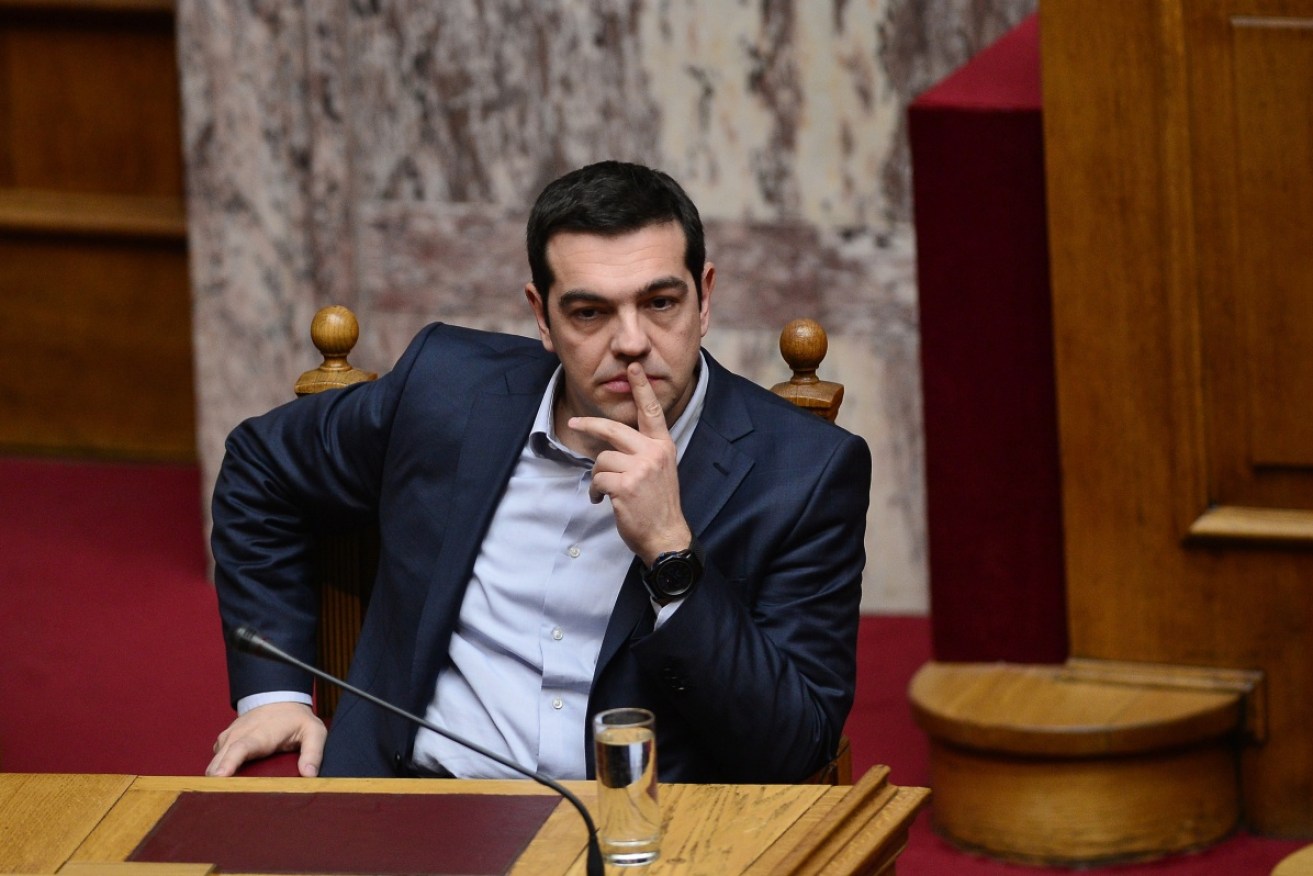Greece asks for six-month loan extension

Getty
Greece has formally asked the EU for a six-month loan extension, officials in Athens and Brussels say, hoping to avoid default and draft a new deal with its creditors.
Eurogroup chief Jeroen Dijsselbloem said on his Twitter account on Thursday that he had received the request, without giving further details.
“Received Greek request for six months extension,” said Dijsselbloem, who is also the Dutch finance minister.
• Greece warned not to waste time
• Crunchtime for indebted Greece
Eurozone finance ministers will hold a special meeting on Friday to decide on the Greek request for the loan extension.
“It is confirmed. The meeting will take place at the usual time,” on Friday afternoon (0100 AEDT Saturday), a European Union spokeswoman said.
Athens is trying to sidestep the restrictions of its bailout, but a number of eurozone hardliners including Germany are likely to resist the move.
“Our proposition will be written in such a way that it will cover both the demands of the Greek side and the head of the Eurogroup,” Greek Finance Minister Yanis Varoufakis told reporters late on Wednesday.
Received Greek request for six months extension.
— Jeroen Dijsselbloem (@J_Dijsselbloem) February 19, 2015
Europe and Greece are racing to reach a deal to avoid a Greek exit from the eurozone – dubbed a “Grexit” – after talks in Brussels ended in acrimony on Monday with both sides digging in their heels.
The European phase of Greece’s EU-IMF bailout expires on February 28, and Athens needs to find 11.9 billion euros ($A17.32 billion) for bond repayments to the IMF and the European Central Bank by August.
Athens is under mounting pressure to reach a deal to forestall a bank liquidity shortage and lasting damage to its fragile economic recovery.
The European Central Bank decided on Wednesday to extend and increase the amount of emergency liquidity available to Greek banks to 68.3 billion euros, according to a bank source.
The decision to raise the ceiling by only 3.3 billion euros, however, was seen by analysts as pressure from the ECB for Athens to clinch a deal and reverse a rise in deposit outflows, which could spark a funding crisis.
The new radical government of Prime Minister Alexis Tsipras that came to power last month wants to reverse many of the fiscal reform obligations tied to the EU-IMF rescue packages which have been keeping the country afloat since 2010.
The government has halted privatisations and promised to increase wages and roll back labour market reforms.








